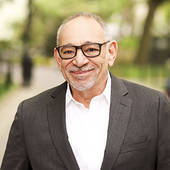A co-op is a form of home ownership that is different than owning real property such as a condo or a house. In a coop each unit is allocated shares. The purchaser buys the shares in the housing corporation. Co-ops are corporations with a board of directors and shareholders. Coops are unique to NYC in the fact that approximately 75% of our properties for sale are co-ops.
When a co-op rejects a purchaser many people are affected. Not only the buyer. The brokers do not get paid. The sellers who have a deposit on a new home might have to forfeit their deposit. And the sellers of the new home that the first seller is buying will lose their buyer.
This post has been updated to reflect the current emphasis on anti-discrimination requirements
Here are some tips to help pass a coop board interview:
- Being called for an interview is a good sign it means you look good on paper.
- Be on time, dress appropriate for the building and neighborhood. Conservative is best.
- Bring a copy of the board package with you. Be familiar with all your financials and everything in the board package.
- Coop boards are stricter than banks, don't assume because you have a commitment from a bank you will satisfy the coops financial requirements. Be able to substantiate questions about your package.
-
More is less do not elaborate and ask questions, an innocent question might offend a board member.
-
It is better to have a short interview than a long one.
-
Do not go into details about elaborate and costly renovations.
-
If the apartment has outdoor space do not discuss barbequing, it is illegal and smells.
-
Do not ask questions or bring up sublet policy or pet policy uless the board brings it up.
-
It is not a job interview, you don't have to try and sell yourself.
-
Let the board ask the questions, set the tone and conduct the interview.
-
Boards like candidates willing to volunteer to serve on the board or building committees.
-
Boards look for candidates that will "fit in" and follow rules.
-
Don't ask or expect a decision on the spot they will notify you within a few days.
- Be prepared for a lack of privacy and to answer personal questions unless they are Fair Housing /NYC Human Rights violations.
- The NYC Human Rights Law prohibits housing discrimination in New York City based on a person's real or perceived race, color, national origin, gender, creed, disability, sexual orientation, marital status, partnership status, alienage or citizenship status, age, lawful occupation or because children may be or will be residing with you.
This year there has been a push in the brokerage community for a strict interpretation of Fair Housing Laws. Brokers can no longer ask clients if they are married or how many kids they have and what they do for a living. Questions that were routinely asked by brokers and coop boards are no longer acceptable.
Under current NYC law co-ops do not have to give a reason why they reject a buyer. There is a bill currently pending in the city council that will require coops to give a reason in writing why they rejected a buyer.
According to The NY Timesopponents of the bill REBNY (Real Estate Board of New York) and the NY council of cooperatives and condominiums together have developed a two-page sheet on anti-discrimination requirements that they recommend be included in every application that goes before a co-op board. They also have put together a sheet on "buyer's rights" that they recommend be given to every co-op applicant. I have yet to see such a sheet in any coop application.
It is illegal for a coop to discriminate. The most recent NYC protected class is lawful occupation. Coops are prohibited by law from asking an applicants occupation. They can ask where you work and your salary. They will require pay stubs and tax returns but should not ask your occupation or any questions concerning your occupation, age, familial status or any questions about the above mentioned protected classes. Any questions along those lines opens them to discrimination law suits. Coop boards and their directors can be sued for discrimination by any of the above 14 protected classes.
It remains to be seen if coops will adhere to these strict anti-discrimination guidelines. IMHO as long as coops are not accountable and operate in secrecy discrimination will continue in spite of NYC Fair Housing Laws.
Time Out New York: How To Be The Perfect Candidate
Manhattan Relocation Package:
- Manhattan, New York City Relocation Guide
- Manhattan Relocation: Helpful Tips, Links and Contact Information
- Relocation Guide: Time Line For Purchasing A Manhattan Home
- Relocation Guide: Understanding (and loving) Manhattan
- New York Apartment terminology A-Z: A Consumer Guide
- NYC Room Count: A Consumer Buyers Guide
- New York City Building Terminology
- Co-ops vs. Condos: Understanding Manhattan Housing
- The Co-op Board Interview: Tips to Help Pass a Coop Board Interview
- Manhattan Closing Costs for Coops and Condos
Neighborhood Relocation Guides:
- Harlem
- Morningside Heights
- Upper West Side
- Clinton/Hells Kitchen
- Chelsea
- Greenwich Village
- SoHo
- Tribeca
- Battery Park City
Courtesy of:
©Mitchell Hall 2006-2009

Comments(10)